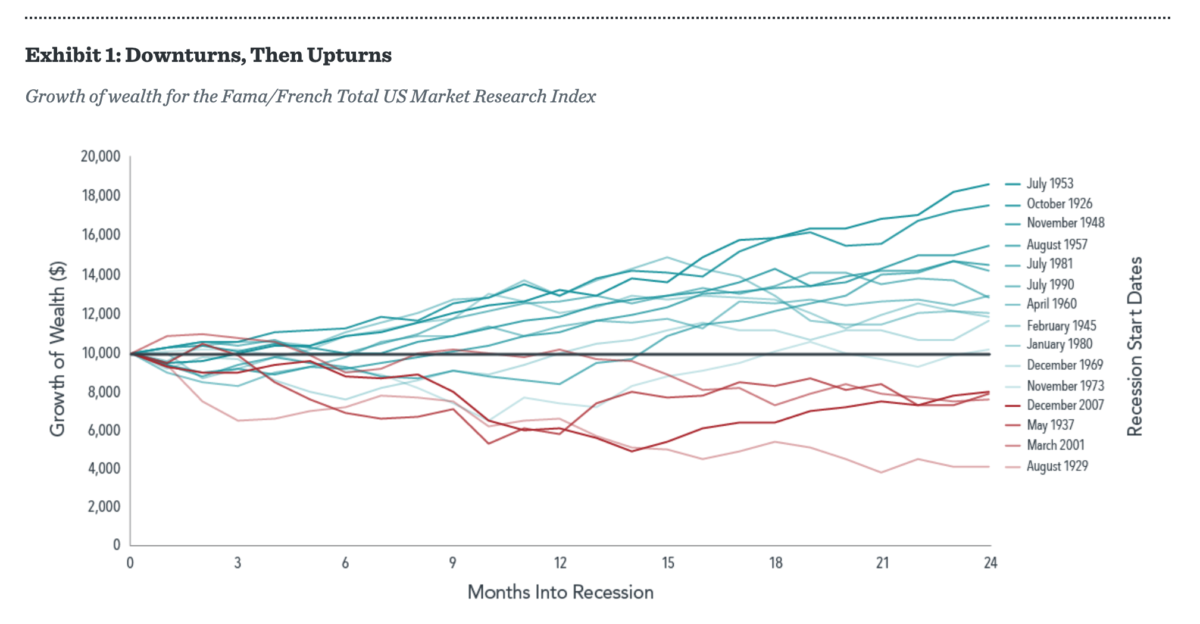
By DIMENSIONAL FUND ADVISORS
In the past century, there have been 15 recessions in the US. In 11 of them, stock returns were positive two years after the recession began.
With activity in many industries sharply curtailed in an effort to reduce the chances of spreading the coronavirus, some economists say a recession is inevitable, if one hasn’t already begun.1 From a markets perspective, we have already experienced a drop in stocks, as prices have likely incorporated the growing chance of recession. Investors may be tempted to abandon equities and go to cash because of perceptions of recessions and their impact. But across the two years that follow a recession’s onset, equities have a history of positive performance.
Data covering the past century’s 15 US recessions show that investors tended to be rewarded for sticking with stocks. The chart below shows that in 11 of the 15 instances, or 73% of the time, returns on stocks were positive two years after a recession began. The annualized market return for the two years following a recession’s start averaged 7.8%.

Note: Past performance, including hypothetical performance, is not a guarantee of future results.
Recessions understandably trigger worries over how markets might perform. But history can be a comfort for investors wondering whether now may be the time to move out of stocks.
1Nelson D. Schwartz, “Coronavirus Recession Looms, Its Course ‘Unrecognizable,’” New York Times, March 21, 2020; Peter Coy, “The U.S. May Already Be in a Recession,” Bloomberg Businessweek, March 6, 2020.
GLOSSARY
Fama/French Total US Market Research Index: The value-weighed US market index is constructed every month, using all issues listed on the NYSE, AMEX, or Nasdaq with available outstanding shares and valid prices for that month and the month before. Exclusions: American Depositary Receipts. Sources: CRSP for value-weighted US market return. Rebalancing: Monthly. Dividends: Reinvested in the paying company until the portfolio is rebalanced.
This article first appeared on the Dimensional Fund Advisors blog, Dimensional Perspectives.
Interested in more insights from Dimensional? Here are some more articles from this series:
Remember, you’ve trained for this
Study provides fresh insight on and returns
The outsize rewards for owning the top-performing stocks
You can’t predict market movements: 2019 is a case in point
DFA’s new investment factor explained
Has value really lost its vigour?








